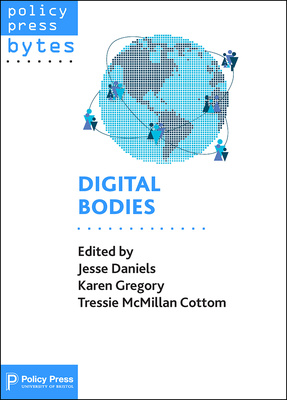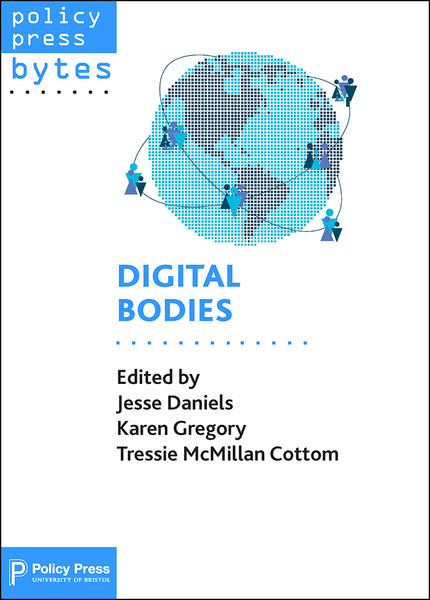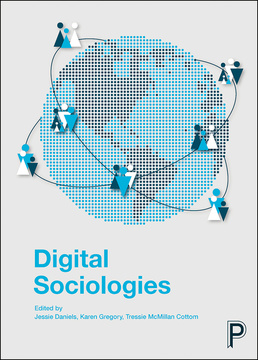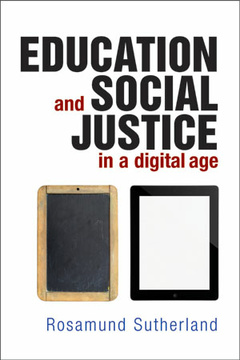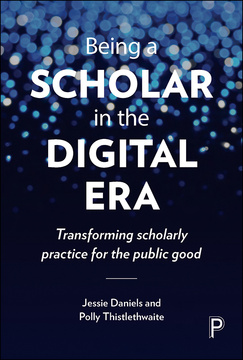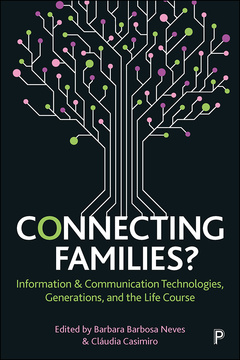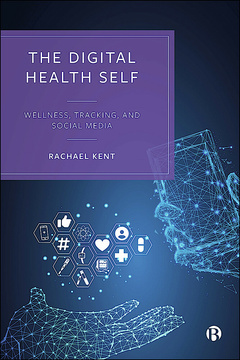Digital Bodies
Edited by Jessie Daniels, Karen Gregory and Tressie McMillan Cottom
Published
Nov 18, 2016Page count
176 pagesISBN
978-1447329077Imprint
Policy PressPublished
Nov 18, 2016Page count
176 pagesISBN
978-1447329084Imprint
Policy PressIn the early days of the internet, we assumed that digital technologies would allow us to escape embodiment and its accompanying entanglements. Yet now our embodied selves are often targeted for abuse and harassment online. As we move into the Internet of Things, the digital is increasingly on and in our bodies. The pieces in this Byte raise important questions about what it means to bring our embodied selves into contact with digital media technologies.
Read alongside one another, the selections here expand our understanding of what it means to live in and through bodies augmented by digital technologies within a deeply unequal social world.
Jessie Daniels is a professor, author and an internationally recognized expert on the Internet manifestations of racism. She is the author of two books about race and various forms of media, as well as dozens of peer-reviewed articles in journals such as New Media & Society, Gender & Society, American Journal of Public Health, and Women’s Studies Quarterly. She co-founded Racism Review, with Joe R. Feagin, and was awarded a Ford Foundation grant for JustPublics@365. In 2014, Contexts Magazine profiled her as “Pioneering Digital Sociology.
Karen Gregory is a lecturer in Digital Sociology at the University of Edinburgh. Her research focuses on contemporary spirituality, precarity, entrepreneurialism and digital media. Her writings have appeared in Women’s Studies Quarterly, Women and Performance, The Journal of Interactive Technology and Pedagogy, and Visual Studies. Karen is the founder of CUNY Graduate Center’s Digital Labor Working Group, which was featured in The Atlantic.
Tressie McMillan Cottom is a former fellow at the Microsoft Social Media Collective, the Center for Poverty Research at UC-Davis and she serves on the American Sociological Association’s “Task Force on Engaging Sociology”. Her work has examined education expansion, media, technology and the intersections of race, class and gender. And her publications have appeared in Contexts, Western Journal of Emergency Medicine and Human Affairs as well as edited volumes. Tressie’s public sociology has appeared in the New York Times, Washington Post, The Atlantic and NPR. Her blog and social media accounts have numerous citations and awards.
A Digital Sociological Approach to Digital Inequality ~ Huw Davies;
Digital Media Activism and Black Mobilization Against Racial Attacks ~ Maryann Erigha;
SCRAM Technology: Addiction and Surveillance in the Digital World ~ Rebecca Tiger;
Downloadable You: Wearable Technology, Embodiment, and the Future of Digital Human Interface ~ Betsy Wissinger;
Chinese Maternity Tourists and ‘Anchor Babies’: Online Commentators’ Disdain and Racialized Conditional Acceptance of Non-‐citizen Reproduction ~ Cassaundra Rodriguez;
Queer Capitalism and Digital Sociality ~ Benjamin Haber;
The Emperor's New Data Clothes: Racial and Gendered Implications of Discourse about Big Data ~ Yuliya Grinberg;
Gender, Race and the 'Experiential' Interface ~ Miriam Sweeney;
View from the Edge: Computational Social Representations as a Methodological Approach to the study of Deviance ~ Daniele Orno Gilmor, London School of Economics.







